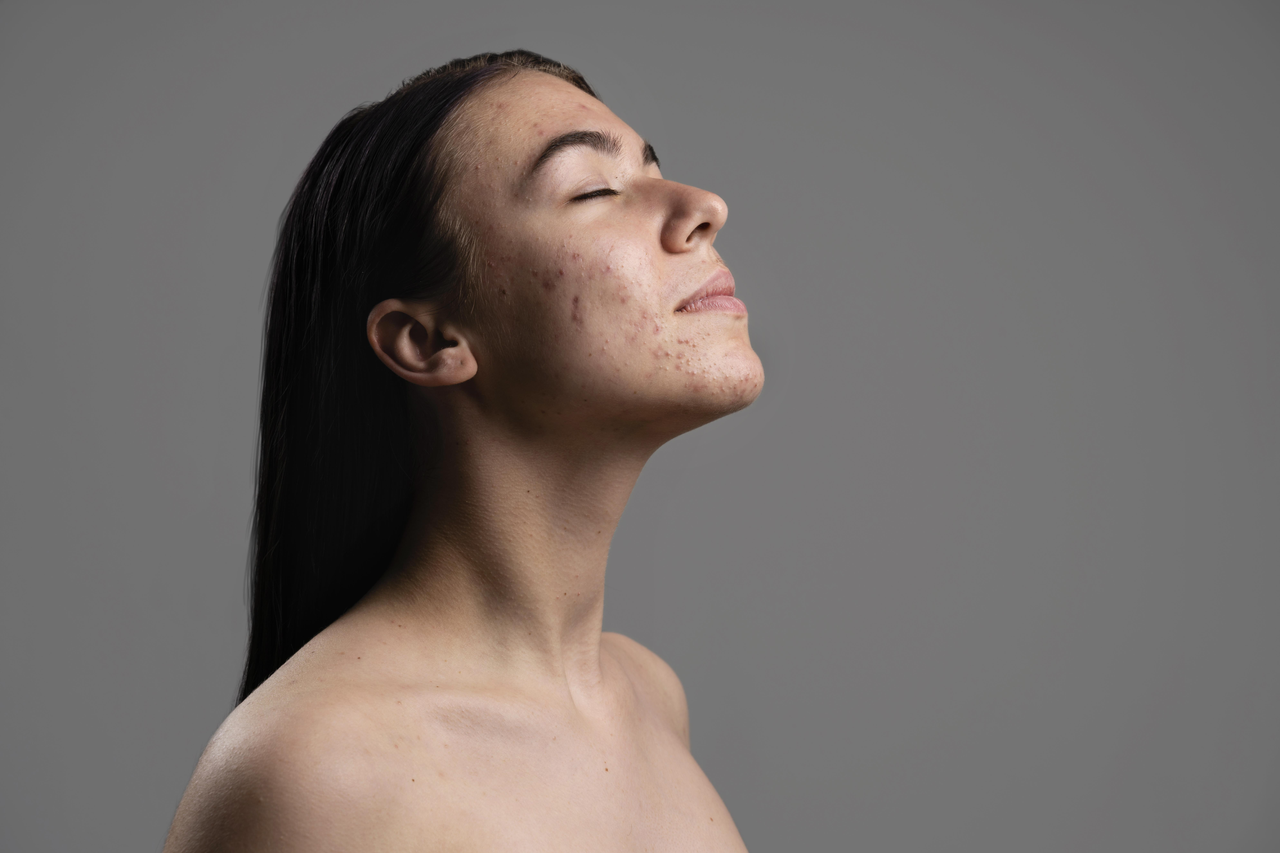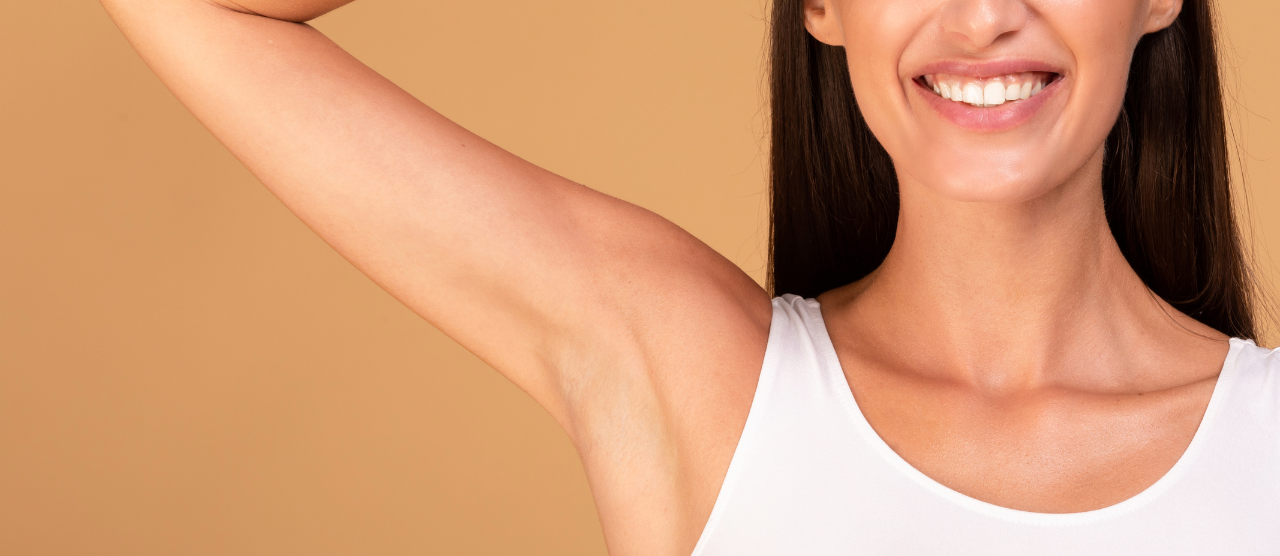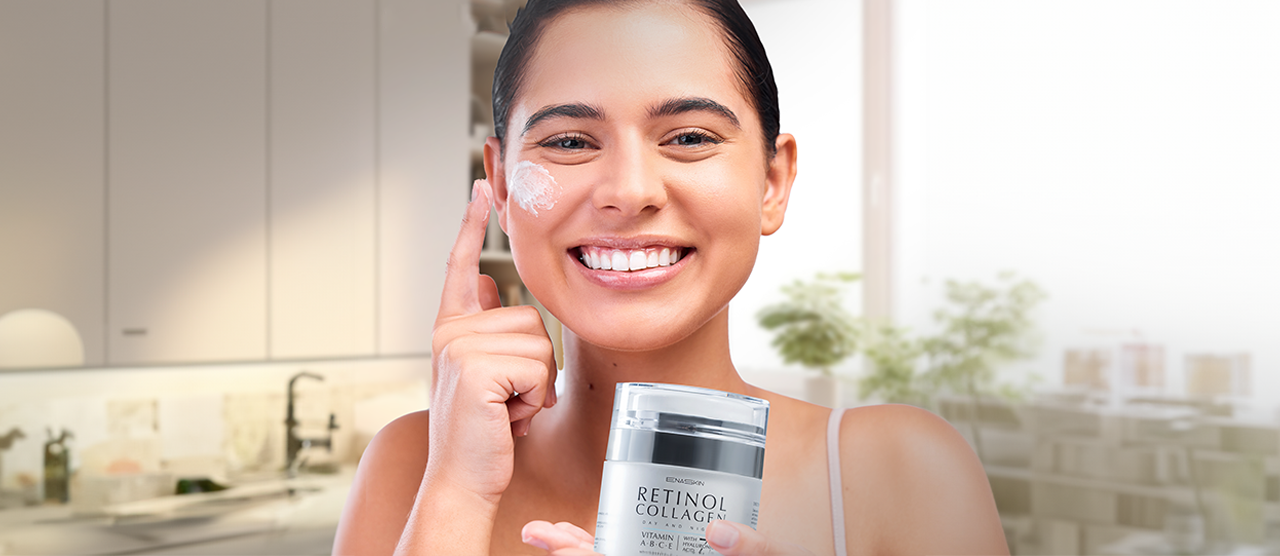In the world of skincare, two ingredients that often get a lot of praise are retinoids and retinol. These Vitamin A derivatives are celebrated for making skin look younger, smoother, and clearer. But even though they come from the same family and offer similar benefits, retinoids and retinol are not the same thing. It's really important for anyone interested in skincare to understand how they differ.
This blog is here to clear up any confusion between the two, exploring what makes each unique and how they can benefit your skin. Whether you're trying to fight wrinkles or manage acne, knowing these details can help you choose the right product for your skin's needs. Let's dive into the world of retinoids and retinol and make these complex skincare heroes a bit easier to understand.
What are Retinoids?
At its core, a retinoid is a derivative of vitamin A, a powerhouse nutrient renowned for its skin-transforming properties. Retinoids work their magic by interacting with skin cells, encouraging them to behave in a healthier, more youthful manner. Think of them as conductors orchestrating a symphony of skin renewal.
The Role of Retinoids in Skincare
Retinoids boast a myriad of benefits, making them a staple in many skincare routines:
-
Promoting Cell Turnover: Retinoids accelerate the skin’s natural exfoliation process, shedding dead cells to reveal fresher, more radiant skin underneath. This turnover also helps to unclog pores, reducing the likelihood of breakouts.
-
Stimulating Collagen Production: Collagen is the scaffolding that keeps our skin firm and supple. Retinoids have the remarkable ability to kick-start collagen production, diminishing the appearance of fine lines and wrinkles over time.
-
Targeting Hyperpigmentation: Whether it’s sun spots, age spots, or acne scars, retinoids can help fade hyperpigmentation by inhibiting melanin production and encouraging even skin tone.
-
Combatting Acne: Thanks to their exfoliating properties and ability to regulate oil production, retinoids are effective in tackling acne and preventing future blemishes.
Image woman with beautful face

Types of Retinoids
When browsing skincare products, you might encounter different types of retinoids. Here’s a brief rundown:
-
Retinol: Considered the gold standard of over-the-counter retinoids, retinol is gentle yet effective. It undergoes conversion in the skin to retinoic acid, the active form that produces the desired results.
-
Retinaldehyde: This intermediary form of vitamin A is closer to retinoic acid than retinol, making it more potent. It’s a great option for those looking for faster results with minimal irritation.
-
Retinyl Palmitate: Found in many entry-level skincare products, retinyl palmitate is the mildest form of retinoid. While it’s less potent than other derivatives, it’s a good starting point for retinoid newbies or those with sensitive skin.
-
Prescription-Strength Retinoids: For more intensive treatment of concerns like severe acne or stubborn wrinkles, prescription retinoids like tretinoin, adapalene, and tazarotene are available. These formulations pack a powerful punch and should be used under the guidance of a dermatologist.
What is Retinol?
Unlike its more potent counterparts like prescription-strength retinoids, retinol is available over the counter and is prized for its efficacy without the need for a visit to the dermatologist.
How Retinol Differs from Other Retinoids
One of the key distinctions between retinol and other retinoids lies in its potency. While prescription-strength retinoids like tretinoin and adapalene exert their effects directly on the skin, retinol undergoes a conversion process within the skin to become active.
The Conversion Process
Once applied topically, retinol undergoes a series of transformations in the skin before it can work its magic. Here’s a simplified breakdown of the conversion process:
-
Absorption: Upon application, retinol penetrates the skin’s outermost layer, the epidermis, and makes its way into the deeper layers where it can exert its effects.
-
Conversion to Retinaldehyde: Within the skin, retinol is enzymatically converted into retinaldehyde, a precursor to retinoic acid. This conversion step is crucial, as retinaldehyde is closer in structure to retinoic acid and can thus yield more potent results.
-
Transformation into Retinoic Acid: Finally, retinaldehyde undergoes further conversion to retinoic acid, the active form of vitamin A that interacts with skin cells to promote collagen production, accelerate cell turnover, and combat signs of aging.
-
Image woman with beautful face

The Benefits of Retinol
Despite its indirect route to activation, retinol boasts a plethora of benefits for the skin:
-
Reduced Wrinkles: By stimulating collagen production and promoting cell turnover, retinol can help minimize the appearance of fine lines and wrinkles, leading to smoother, more youthful-looking skin.
-
Improved Texture: Regular use of retinol can refine the skin’s texture, leaving it softer, smoother, and more even-toned.
-
Targeted Treatment: Whether you’re dealing with acne, hyperpigmentation, or sun damage, retinol can address a variety of skincare concerns with consistent use.
Key Differences Between Retinoids and Retinol
The terms "retinoids" and "retinol" are often used interchangeably, but they represent distinct compounds with varying potency levels, side effects, and usage recommendations. Understanding these differences is essential for maximizing their benefits while minimizing any potential drawbacks.
Potency and Effectiveness
The primary distinction between prescription retinoids and over-the-counter retinol lies in their potency levels and effectiveness:
-
Prescription Retinoids: Tretinoin, adapalene, and tazarotene are examples of prescription-strength retinoids. These formulations contain the active ingredient retinoic acid, which is directly recognized by the skin's receptors, leading to more immediate and potent results. Prescription retinoids are often recommended for addressing severe acne, deep wrinkles, and other advanced skincare concerns.
-
Over-the-Counter Retinol: Retinol, on the other hand, is a milder form of vitamin A that undergoes conversion within the skin to become retinoic acid. While this process results in a slower onset of action compared to prescription retinoids, retinol is still effective in promoting collagen production, accelerating cell turnover, and improving overall skin texture. Over-the-counter retinol products are suitable for individuals seeking gradual improvement in their skin without the need for a prescription.
Side Effects and Tolerance
Both retinoids and retinol can cause side effects, although their severity and frequency may vary:
-
Prescription Retinoids: Due to their higher potency, prescription retinoids are more likely to cause irritation, dryness, redness, and peeling, especially during the initial weeks of use. These side effects can be challenging to tolerate for individuals with sensitive skin and may require a gradual adjustment period.
-
Over-the-Counter Retinol: While retinol is generally considered gentler than prescription retinoids, it can still cause mild irritation and sensitivity, particularly when first incorporated into a skincare routine. However, the side effects associated with over-the-counter retinol are typically less severe and easier to manage compared to prescription formulations.
Image woman with beautful face

Usage and Application
-
Prescription Retinoids: Dermatologists typically prescribe retinoids for nightly use, advising patients to apply a pea-sized amount to clean, dry skin and gradually increase frequency as tolerated. Prescription retinoids should be used in conjunction with a gentle cleanser, moisturizer, and broad-spectrum sunscreen to minimize irritation and photosensitivity.
-
Over-the-Counter Retinol: Over-the-counter retinol products are often formulated with lower concentrations of the active ingredient to reduce the risk of irritation. Depending on individual tolerance, retinol can be used every other night or a few times per week initially, with frequency gradually increased over time. It's important to pair retinol with a hydrating moisturizer and sunscreen during the day to maintain skin barrier function and protect against sun damage.
Choosing the Right Type for Your Skin
When it comes to selecting the right retinoid or retinol for your skincare routine, understanding your skin type and concerns is key. Whether you're dealing with acne, signs of aging, or sensitivity, there's a formulation out there to suit your needs. Let's explore how to choose the perfect option for your skin and recommend some standout products for both beginners and experienced users.
Skin Types and Concerns
-
Acne-Prone Skin: If you struggle with acne, prescription-strength retinoids like tretinoin or adapalene are often recommended. These formulations work to unclog pores, reduce inflammation, and prevent breakouts. For those with milder acne or occasional blemishes, over-the-counter retinol can also be effective in promoting clearer, healthier skin.
-
Aging Skin: To combat signs of aging such as fine lines, wrinkles, and loss of firmness, both prescription retinoids and over-the-counter retinol can be beneficial. However, individuals with aging skin may prefer prescription-strength retinoids for their more potent anti-aging effects and faster results.
-
Sensitive Skin: If you have sensitive skin prone to irritation and redness, opting for a gentle retinol formulation is essential. Look for products labeled as "sensitive skin," "gentle," or "low irritation" and start with lower concentrations to minimize the risk of adverse reactions. Additionally, incorporating retinol into your skincare routine gradually can help your skin adjust more comfortably.
Product Recommendations
For Beginners:
-
Anti Aging Retinol Facial Serum by Enaskin Naturals (https://www.amazon.com/Anti-Aging-Retinol-Facial-Serum/dp/B0CKVZG3GF?ref_=ast_sto_dp): With its potent blend of retinol, hyaluronic acid, and other skin-loving ingredients, the Anti Aging Retinol Facial Serum by Enaskin Naturals is a standout choice for individuals seeking to combat signs of aging while maintaining hydrated, radiant skin.
-
The Ordinary Retinol 0.2% in Squalane: This gentle yet effective retinol formulation is perfect for beginners looking to introduce vitamin A into their skincare routine. The low concentration minimizes the risk of irritation, while the squalane base helps hydrate and soothe the skin.
-
CeraVe Skin Renewing Retinol Serum: Formulated with encapsulated retinol to ensure stability and gradual release, this serum is suitable for all skin types, including sensitive skin. The addition of ceramides and hyaluronic acid helps maintain the skin's moisture barrier and hydration levels.
Image products but make ENASKIN product mentioned here standout

For Experienced Users:
-
Enaskin Naturals Retinol Face Moisturizer (https://www.amazon.com/Face-Moisturizer-Collagen-Retinol-Cream/dp/B0CJ4C3718?ref_=ast_sto_dp): With its comprehensive anti-aging care, revitalizing beauty formulas, and commitment to safety and effectiveness, Smooth Skin Essential by Enaskin Naturals, is the perfect choice for individuals seeking to achieve a youthful glow with confidence.
-
Differin Gel (Adapalene 0.1%): As the first FDA-approved over-the-counter retinoid for acne treatment, Differin Gel is a go-to option for experienced users seeking clear, blemish-free skin. Its potent formulation effectively targets acne while minimizing irritation and promoting skin renewal.
-
SkinCeuticals Retinol 1.0: Designed for advanced users seeking maximum anti-aging benefits, this potent retinol treatment features a high concentration of pure retinol to reduce the appearance of wrinkles, fine lines, and uneven skin tone. The addition of soothing ingredients helps mitigate potential irritation, making it suitable for most skin types.
Final Thoughts
The debate between retinoids and retinol often sparks curiosity and confusion. However, understanding the differences between these two powerhouse ingredients is essential for crafting an effective skincare regimen tailored to your needs.
Image woman showing two hands left retinoid product, right retinol product

Retinoids: Prescription-strength retinoids like tretinoin, adapalene, and tazarotene contain the active form of vitamin A, known as retinoic acid. These potent formulations offer accelerated results in combating acne, reducing wrinkles, and improving overall skin texture. While highly effective, they may also come with a higher risk of irritation and require careful supervision from a dermatologist.
Retinol: Over-the-counter retinol, on the other hand, is a milder derivative of vitamin A that undergoes conversion within the skin to become retinoic acid. Although the results may take longer to manifest compared to prescription retinoids, retinol offers a gentler approach to addressing skincare concerns such as fine lines, wrinkles, and uneven tone. Its accessibility and versatility make it suitable for individuals with varying skin types and tolerances.
Ultimately, the choice between retinoids and retinol boils down to individual preferences, skin concerns, and tolerance levels. Those seeking rapid results and willing to navigate potential side effects may opt for prescription retinoids, while others may prefer the gradual approach and accessibility of over-the-counter retinol.
Regardless of your choice, incorporating retinoids or retinol into your skincare routine requires patience, consistency, and sun protection. Start low and slow, gradually increasing frequency and concentration as your skin adjusts. And always remember to pair your retinoid or retinol treatment with a hydrating moisturizer and broad-spectrum sunscreen to maintain skin health and protect against sun damage.
In the end, whether you choose retinoids or retinol, the journey to healthy, radiant skin is a personal one. By understanding the differences and listening to your skin's needs, you can embark on a skincare adventure that brings out the best version of yourself.





